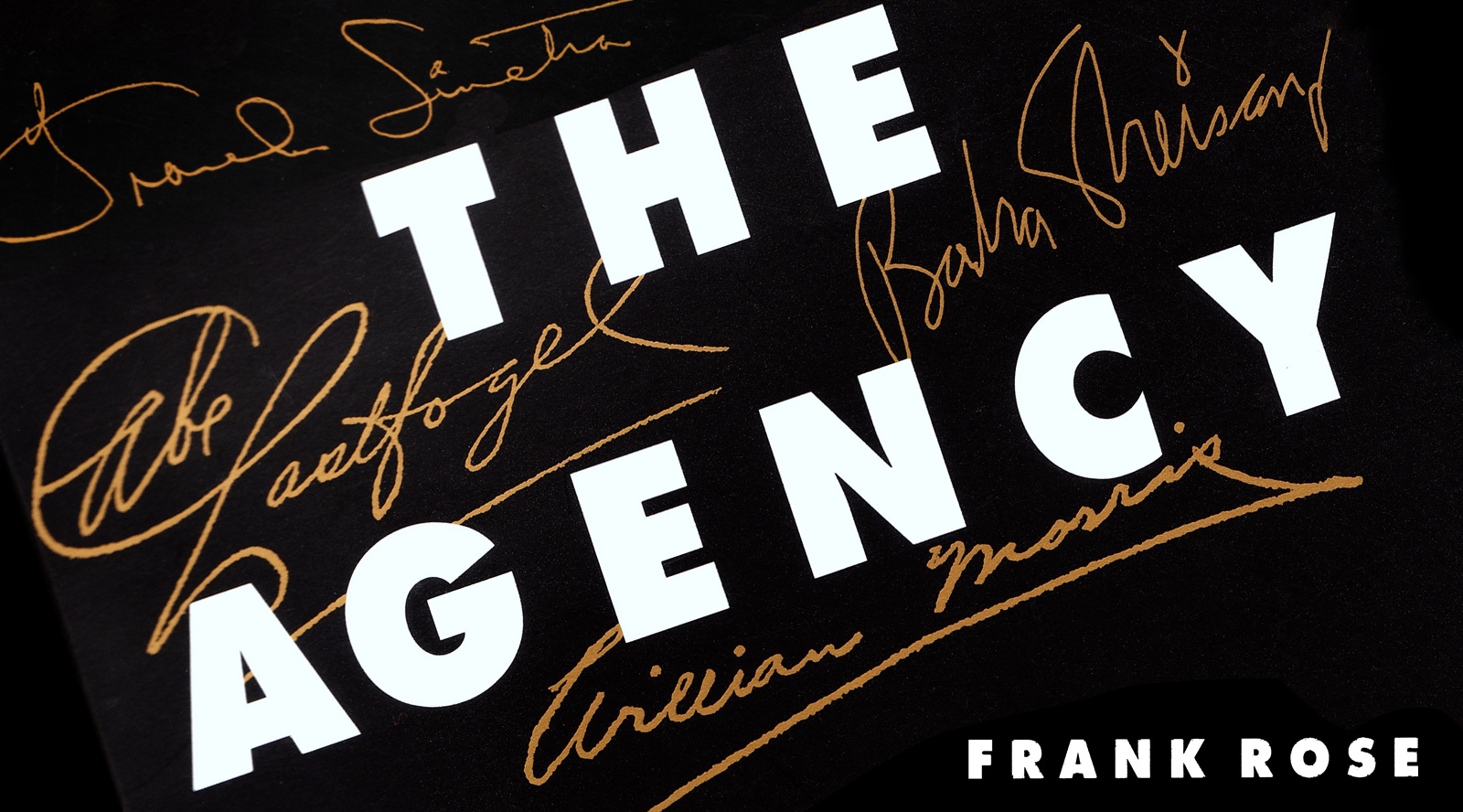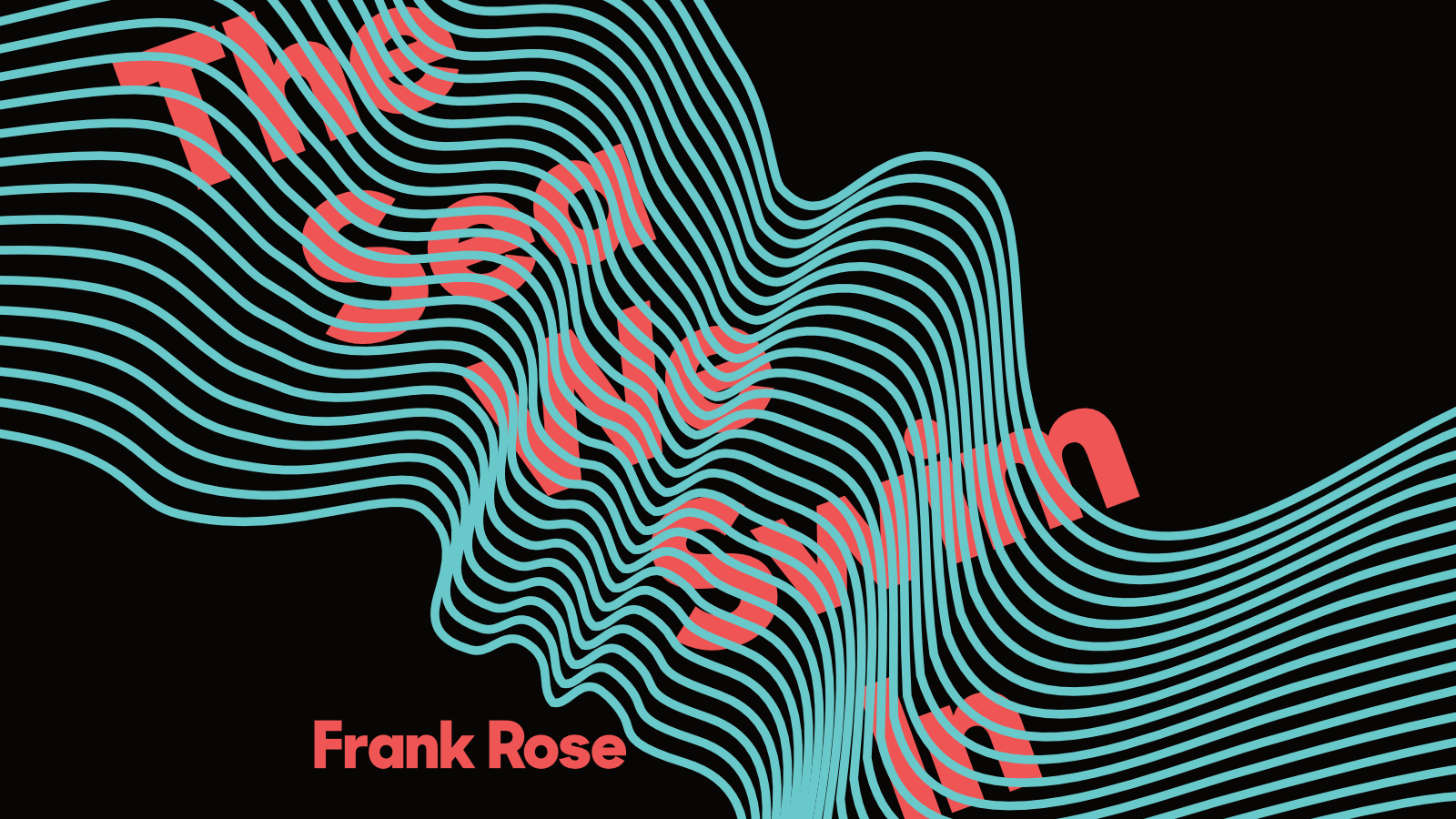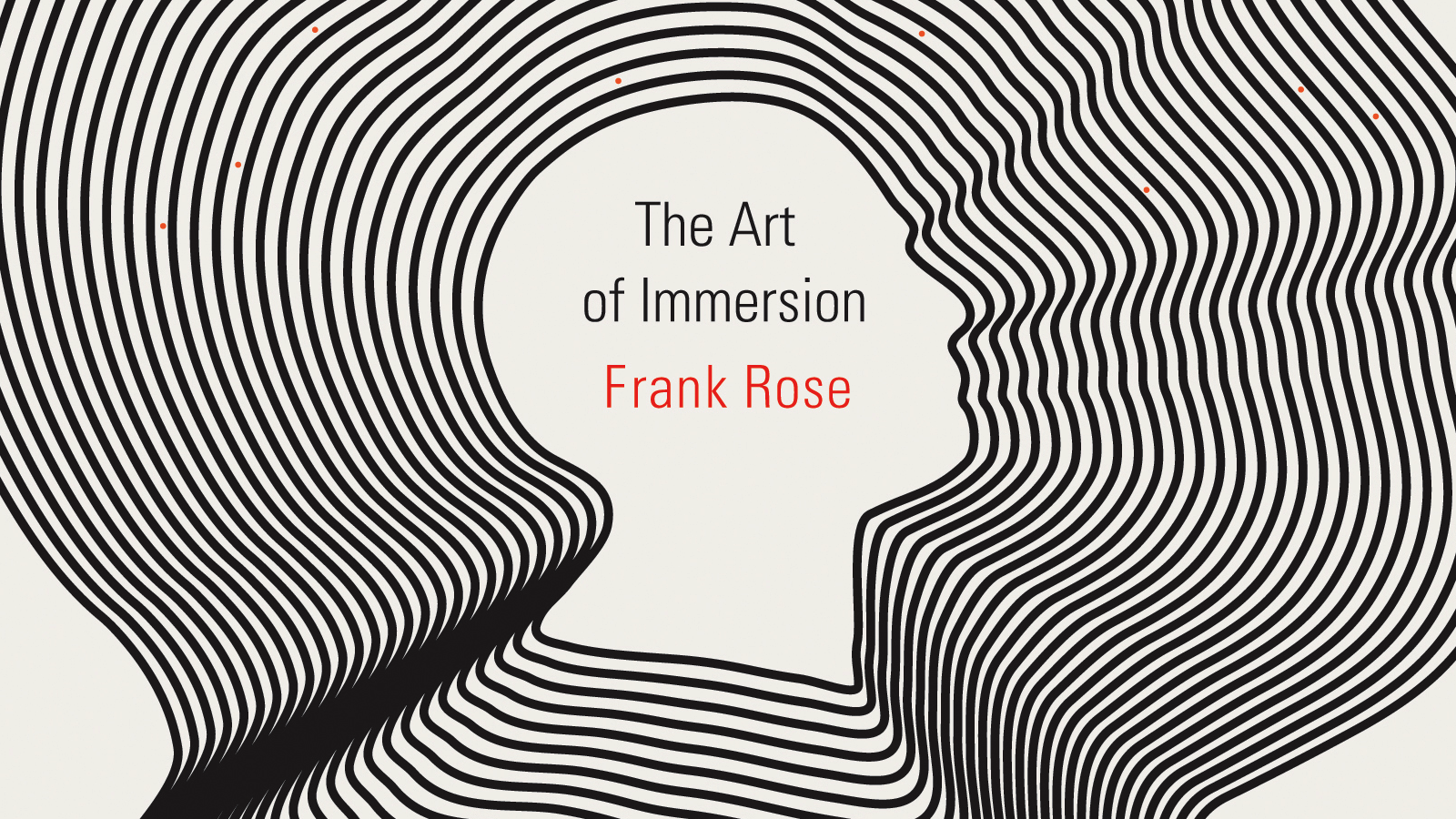The Agency
William Morris and The Hidden History of Show Business
"A cram course on the modern entertainment business as seen not from the customary perspective of the talent, but from the point of view of the humble apparatchiks who doggedly tried to prevent the lunatics from wrecking their asylum."
— Peter Bart, The New York Times Book Review"This juicy narrative reveals the shark tank at its most lethal and hilarious. The anecdotes come at us at assault-rifle speed, but it's Rose's deft use of show-biz vernacular that keeps the pages turning."
— San Francisco Chronicle"'The Agency' is more than just a titillating string of bold-face names, though; Rose uses the saga of the Morris Agency's rise and fall as a prism through which to examine the constantly evolving nature of show business itself."
— Gregg Kilday, Los Angeles Times Book Review"A fascinating history of William Morris. It's not about the stars as much as the men (and women) who helped make the stars — the 'star-making machinery' as Joni Mitchell sang in 'Free Man in Paris,' her ode to David Geffen, himself one of the William Morris men. . . . Classic stuff, this book."
— David Rensin, author of "The Mailroom""A must-read for anyone who wants to understand both the general thrust of Hollywood innovation and the general influence of agents behind that innovation, starting in 1898 when William Morris opened shop."
— WME partner Bradley Singer in Business Insider"An encyclopedic account of the development of the modern entertainment business . . . There are stories about how deals were made, bluffs called, booze guzzled, pills popped and stars born. There are stories about mobsters and the birth of Las Vegas, and tales of betrayal during the dark days of the Commie scare and the Hollywood blacklist. . . . Rose has done a remarkable job."
— Chicago Tribune"A brash, sometimes funny, often poignant and engaging story. . . . It's a darker side of show biz than one sees on 'Entertainment Tonight.' But serious students of popular culture and fans of smart storytelling will find a lot to enjoy."
— USA TodayThe unauthorized account of the rise and fall of Hollywood’s greatest talent agency
FOR DECADES, hidden from the public eye, William Morris agents made the deals that determined the fate of stars, studios, and television networks alike. Mae West, Frank Sinatra, Marilyn Monroe, Elvis Presley, Barbra Streisand—the Morris Agency sold talent to anyone who would buy it, from the Hollywood moguls to the Madison Avenue admen who controlled television to the mobsters who ran Vegas. While the clients took the spotlight, the agency stayed behind the scenes, providing the grease that made show business what it’s become.
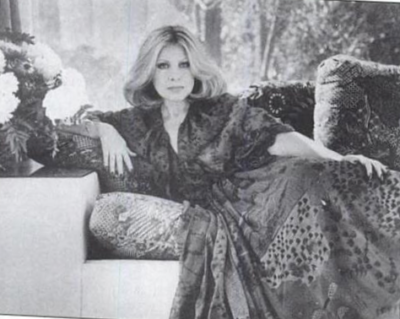
Sue Mengers—portrayed by Bette Midler on Broadway in “I’ll Eat You Last,” shown here at the height of her power—was the most glamorous seller in Hollywood during the 1970s.
The story began well over a century ago, when a fiery young German-Jewish immigrant named William Morris (birth name: Moses Zelman) opened a vaudeville-booking office on Fourteenth Street in New York City and went up against the trust that ruled the leading entertainment medium of the day. Led after Morris’s death by by Abe Lastfogel, a cherubic little man who treated agents and clients alike as family, the Morris office transformed the talent agent’s image from garish flesh-peddler to smooth-talking professional. But in the 1970s, when Lastfogel’s protégé brutally sacrificed his own best friend—the man who’d brought Barry Diller and Michael Ovitz out of the mailroom—Morris gave birth to its own nemesis: Ovitz’s new shop, Creative Artists Agency. Throughout the ’80s and ’90s, as Morris made, and lost, such major stars as Kevin Costner, Mel Gibson, Tom Hanks, and Julia Roberts, Ovitz’s power grew inexorably as Morris’s waned. Lulled by the phenomenal success of Bill Cosby on television and the upward spiral of the Beverly Hills real estate market, Morris’s board failed to act as death and defection thinned the agency’s ranks. Not even the last-minute hiring of the legendary Sue Mengers—“the superagent who ruled Hollywood with sex and booze,” as a New York Post headline once put it—was enough to revive the Morris office. Finally, with its flagship motion-picture department at the brink of collapse, Morris was faced with the stark reality of having to buy its way back into the business it had once owned.
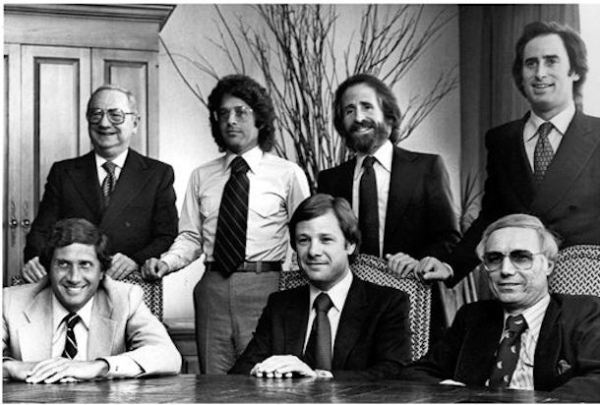
Michael Ovitz (seated, center) and Ron Meyer (standing, center left) exited William Morris with their partners to form CAA, a move that would alter the balance of power in Hollywood. Photo: Los Angeles Times
❖
THE AGENCY began when Frank Rose was interviewing Mengers at her home in Beverly Hills for “The Case of the Ankling Agents” — an article for Premiere magazine on the latest exodus of motion picture stars and agents — and she told him he had to write a book about it. What followed was four years of writing and research — interviews with the cofounders of CAA, with ex-Morris agents like Bernie Brillstein and David Geffen and the managers of one-time Morris stars, with retired mobster Vincent “Jimmy Blue-Eyes” Alo and with the New York detective who led the investigation into the agency’s Mob ties in the ’50s; sifting through the original William Morris family scrapbooks in the New York Public Library’s Billy Rose Theatre Division; digging into the archives of the Academy of Motion Pictures’ Margaret Herrick Library in Beverly Hills and the Shelby County Clerk’s Office in Memphis, where the Morris office’s deals with Colonel Tom Parker were recorded; and poring over documents obtained through the Freedom of Information Act from the FBI, the Securities and Exchange Commission, and both the antitrust and criminal divisions of the US Department of Justice.
By the time THE AGENCY was published, in 1995, Morris was in the midst of a long transformation that would eventually see it reconstituted as William Morris Endeavor, a radically different firm led by Ari Emanuel, the agenting powerhouse who served as the inspiration for the hard-driving agent in the HBO television series Entourage. All along, the book has remained required reading for new generations of Hollywood mailroom trainees, indeed for anyone with a hunger to understand how show business works and how it evolved, gradually yet inexorably, into what it is today. ♦
Read the Los Angeles Times excerpt on Michael Ovitz and the founding of CAA — and the companion piece in the Los Angeles Times Magazine on Lew Wasserman and the deal with Seagram that created Universal.
Read the followup articles in Fortune on the fall of Michael Ovitz and Edgar Bronfman Jr.’s colossal bet on Universal.
How Stories Work in a Data-Driven World
"It’s a zingier version, then, of the post-Aristotelian story-theory books beloved of screenwriters, with a rich range of reference that takes in the novels of Gustave Flaubert as well as the twists of ABC's 'Lost.' But the analysis has a wider salience. . . . It’s critical thinking for an age of pervasive media."
— Steven Poole, The Wall Street JournalWE SWIM IN A SEA OF STORIES — stories that determine how we comprehend the world, that define our personal lives, our professional lives, our goals and ambitions and ideals. They can control us, or we can control them — if we know how they work. More about this book...
How the Digital Generation Is Changing Hollywood, Madison Avenue, and the Way We Tell Stories
"Like Marshall McLuhan’s groundbreaking 1964 book, 'Understanding Media,' this engrossing study of how new media is reshaping the entertainment, advertising, and communication industries is an essential read."
— Library JournalNOT LONG AGO WE WERE passive consumers of mass media. Now we approach television, movies, even advertising as invitations to participate. We are witnessing the emergence of a new form of narrative that is native to the Internet. More about this book...

